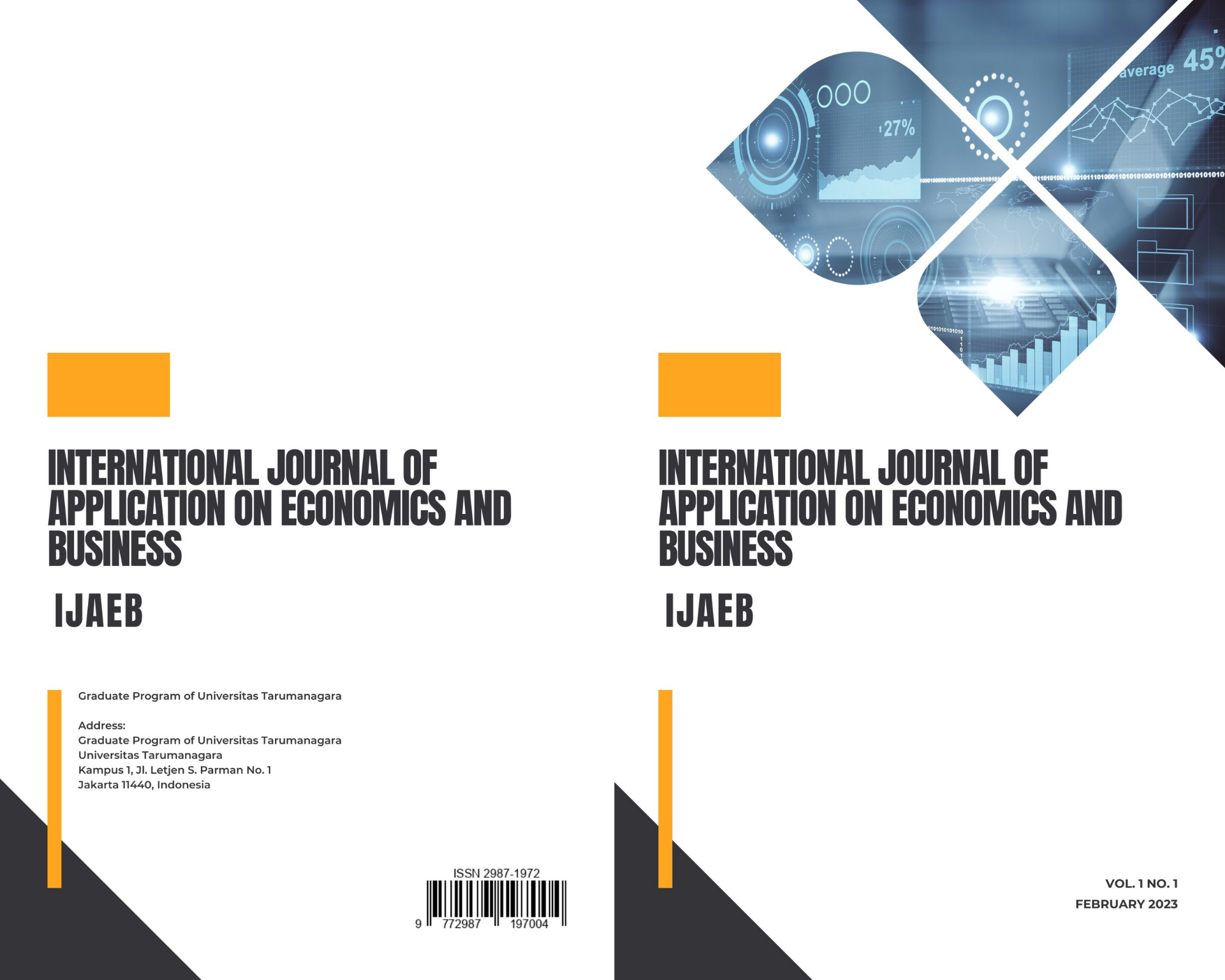The Effect of Attitudes, Social Environment, and Self-Efficacy on Entrepreneurship Intention of S1 Management Students in West Jakarta
Main Article Content
Abstract
Along with the passage of time and the development of people's ability in entrepreneurship, entrepreneurial activities are increasingly in demand by the world community from various different backgrounds including Indonesia. Entrepreneurial activities are now seen as an activity that can provide opportunities to achieve success through the efforts they create. The purpose of this study was to find out and analyze the influence of attitudes, sosial environment, and self-efficacy on the entrepreneurship intentions of S1 Management Students of West Jakarta. Sampling this study was done by non-probability sampling methods, namely voluntary sampling and data collection is done with questionnaires. This study sample was 100 respondents from 105 respondents who studied at universities in West Jakarta. This study used SmartPLS 3.3.3 in processing the collected data. The results of this study found that attitudes and self-efficacy have a positive and significant influence on entrepreneurship intentions in undergraduate management students in West Jakarta, while the social environment does not have a significant influence on the social entrepreneurship intentions of students.
Article Details
Section

This work is licensed under a Creative Commons Attribution-NonCommercial-ShareAlike 4.0 International License.
This journal provides immediate open access to its content on the principle that making research freely available to the public supports a greater global exchange of knowledge.
IJAEB by Graduate Program of Universitas Tarumanagara is licensed under a Creative Commons Attribution-NonCommercial-ShareAlike 4.0 International License.. Permissions beyond the scope of this license may be available at https://journal.untar.ac.id/index.php/ijaeb
References
Badan Pusat Statistik. Retrieved January 27, 2022 (2021, May 5).
CNN Indonesia. Angka Pengangguran muda ri Tertinggi Se-Asia Tenggara. Berita Maluku Utara. Retrieved January 27, 2022 (2021, May 3).
AsiaToday. Di Asean, Rasio Kewirausahaan Indonesia tertinggal Dari Malaysia Dan Thailand. AsiaToday.id. Retrieved January 27, 2022 (2020, November 27).
Liputan6.com. Rata-rata Rasio Wirausaha di negara maju 12 persen, Indonesia baru 3,74 persen. liputan6.com. Retrieved January 27, 2022 (2021, July 28).
Putra, I. R. Wapres: Jumlah Wirausaha Indonesia sangat rendah dibandingkan Malaysia Dan Thailand. merdeka.com. Retrieved January 27, 2022 (2020, October 20).
Liputan6.com. Menteri Teten: Jumlah Wirausaha di Indonesia paling rendah di asia tenggara. liputan6.com. Retrieved January 27, 2022 (2021, April 21).
Detikcom, T. Rasio Kewirausahaan Ri Kecil, Ditjen Vokasi Percepat program Ekosistem. detikedu. Retrieved January 27, 2022 (2021, August 4).
Halim, J. N., & Nuringsih, K. “Kreativitas, Sikap Terhadap Kewirausahaan, Orientasi Kewirausahaan Untuk memprediksi NIAT Berwirausaha Pada Mahasiswa Universitas Tarumanagara.” Jurnal Manajerial Dan Kewirausahaan, 3(4), 1029 (2021). https://doi.org/10.24912/jmk.v3i4.13476
Suratno, Farida Kohar, Ali Idrus, & Suci Pratiwi. “Pengaruh Lingkungan Keluarga Dan Efikasi Diri terhadap Motivasi Berwirausaha serta Dampaknya Terhadap intensi Berwirausaha Mahasiswa fakultas Keguruan Dan Ilmu pendidikan (FKIP) universitas jambi.” Jurnal Ilmu Manajemen Terapan, 1(4), 318–332 (2020). https://doi.org/10.31933/jimt.v1i4.120
Prawoto, E., & Affandi, A. “Pengaruh pendidikan Kewirausahaan, Lingkungan Keluarga Terhadap intensi Berwirausaha Dengan sikap berwirausaha Sebagai Variabel Mediasi.” Jurnal Penelitian Dan Pengabdian Kepada Masyarakat UNSIQ, 8(1), 50–60 (2021). https://doi.org/10.32699/ppkm.v8i1.1648
Shah, I. A., Amjed, S., and Jaboob, S. “The moderating role of entrepreneurship education in shaping entrepreneurial intentions.” Journal of Economic Structures, 9(1) (2020). https://doi.org/10.1186/s40008-020-00195-4
Indahsari, L., & Puspitowati, I. “Pengaruh pendidikan Kewirausahaan Dan Efikasi Diri Terhadap intensi Wirausaha Mahasiswa Universitas Tarumanagara.” Jurnal Manajerial Dan Kewirausahaan, 3(1), 267 (2021). https://doi.org/10.24912/jmk.v3i1.11320
Wahyono, B. Intensi (NIAT) berwirausaha. Intensi (Niat) Berwirausaha. Retrieved January 27, 2022 (2014, July 15).
Ajzen, I. “The theory of planned behavior.” Organizational Behavior and Human Decision Processes, 50(2), 179–211 (1991). https://doi.org/10.1016/0749-5978(91)90020-t
Fishbein, M., & Ajzen, I. “Theory-based behavior change interventions: Comments on Hobbis and Sutton.” Journal of Health Psychology, 10(1), 27–31 (2005). https://doi.org/10.1177/1359105305048552
Licht, A. N., & Siegel, J. I. The social dimensions of Entrepreneurship. Oxford Handbooks Online (2009). https://doi.org/10.1093/oxfordhb/9780199546992.003.0019
Tiffany. 8 pengertian Sikap Menurut Para Ahli. DosenPsikologi.com. Retrieved January 27, 2022 (2017, July 19).
Admin. Lingkungan Sosial : Pengertian, Faktor, Jenis Dan Contoh Lingkungan Sosial menurut para ahli lengkap. Sekolahan.Co.Id. Retrieved January 27, 2022 (2019, July 3).
Maulana, A. R. Definisi self efficacy (Efikasi Diri) Menurut Para Ahli. PsikologiHore! Retrieved January 27, 2022 (2020, March 21).

